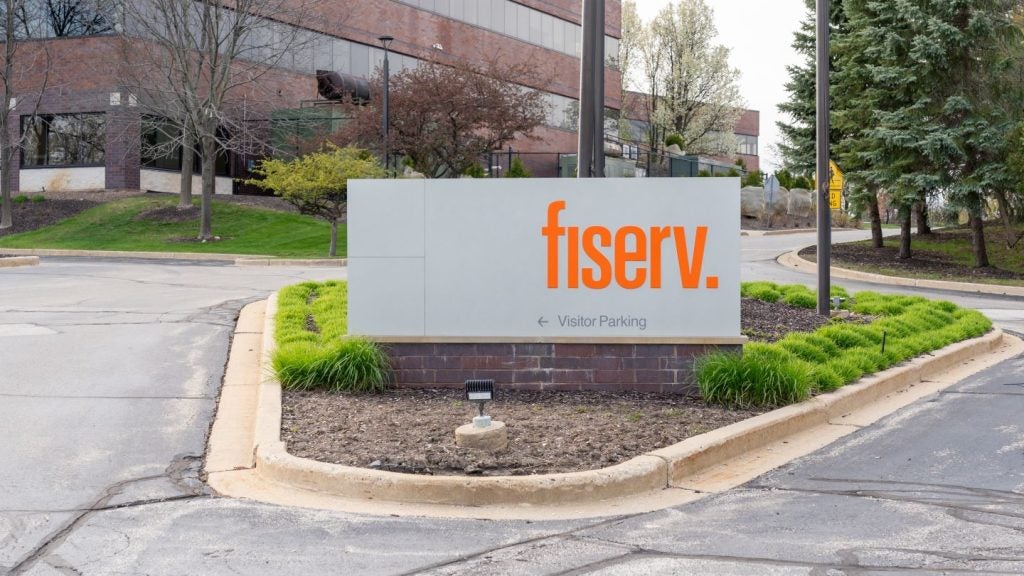demand for online payments facilities is a daunting if not
impossible task. This need no longer be the case believes PaySimple
which offers solutions aimed at putting small businesses on an
even-footing with the largest of their rivals. Charles
Davis reports.
headache for small businesses which lack the back-office staff to
create in-house solutions that are scalable and cost-effective.
Looking to bridge the gap between small businesses and the payments
needs of consumers, a US company based in Denver Colorado,
PaySimple, has devised an online platform that takes away all of
the hassles of recurring bills, and does so in a way that even the
smallest business can afford.
“Our focus is, we simplify things for small
businesses and we empower them,” Paysimple CEO Eric Remer told EPI.
“We provide them the same tools and technology for collecting
electronic payments that any Fortune 500 company has.”
Consumers have bought into online bill payment –
a study by industry body the National Retail Federation (NRF) found
that more than half of US households use a recurring payment plan
for at least
one bill.
An increasing proportion of those bills are being
paid online with the NRF anticipating that online bill payments
will have risen by 18 percent for 2008, with a good percentage of
that growth reflecting small businesses going online for the first
time. Many smaller businesses with an emerging online presence have
no payments option beyond one-time credit card transactions,
despite the fact that many billers have recurring statements.
Platform for business
PaySimple markets a platform for businesses that
automatically bills, collects and deposits online payments. In
addition to recurring payments, PaySimple handles online payment
processing, electronic invoicing, automated clearing house (ACH)
direct debits, electronic cheque processing and credit card
processing. It can also provide merchant accounts and service a
small business’s payments gateway.
Integrating PaySimple requires no internet
expertise or technical know-how. First, the merchant submits an
ACH/merchant account application. After approval, customer
databases are uploaded and any necessary customisation occurs.
Finally, staff is trained, generally with a half-hour phone call.
All data is encrypted for storage using certificates compliant with
128-bit encryption.

US Tariffs are shifting - will you react or anticipate?
Don’t let policy changes catch you off guard. Stay proactive with real-time data and expert analysis.
By GlobalDataFees vary, but set up is generally about $129 and
there are monthly maintenance fees of $29.95 – about what it costs
for a month of high-speed Internet access.
Instead of printing and mailing invoices and
processing incoming cheques or credit card payments every billing
cycle, a small business could spend a few minutes setting up a
payment page and be finished. PaySimple’s system is so
straightforward that a new client can create a new payments site
simply by selecting a series of buttons and filling in a few
dialogue boxes. PaySimple is an on-demand system that hosted by the
firm, so there is no software for retailers to install or
maintain.
When businesses convert payment systems to
auto-recurring systems they can reduce processing costs by over 50
percent, according to the company, so there is huge potential for
the service among the myriad small businesses, from dry cleaners to
dog walkers, who could benefit from simplifying recurring payments.
The company already has 1,600 clients and is growing by more than
200 new billers per month.
According to a survey by PaySimple and Market
Platform Dynamics, less than 50 percent of small businesses
surveyed accept some form of electronic payments. However, these
business owners see the future of electronic payments coming
quickly, as roughly 70 percent of them believe that within the next
two years 50 percent of their payments will be via electronic
methods.
Overall, some 78 percent of companies sampled
prefer cash and paper cheques today, and for 66 percent, paper
cheques are the primary method of payment. Roughly one quarter
favour cash and 28 percent choose electronic payments, with the
exception being retail and travel where electronic is
overwhelmingly preferred. Most of those surveyed do business
directly with consumers – with their customers transacting with
them on a monthly basis – and 55 percent report a typical
transaction size of more than $500.
Control, functionality
PaySimple gives customers control, functionality
and service that separates the service from other electronic bill
payment and presentment firms.
For example, while PaySimple collects payments,
it leaves the customer-facing service resolution in the hands of
the client, so the merchant handles customers whose payments do not
go through and customers who have questions or issues to resolve or
changes to make to the recurring payment. This ensures that the
merchant continues to nurture the customer relationship, and
provides personalisation of service.
Remer said that PaySimple also provides
accounting functions online, giving small businesses access to the
same tools that giant corporations have for managing their
finances.
Processing credit card payments daily means that
small businesses can ease cash flow issues, and the software also
automates cheque clearing, so small businesses can easily deal with
rejected cheques. Firms with sales commissions can be confident
that the sale has cleared, saving the time and expense or
retrieving commissions from failed transactions.
Clients no longer have to comb through credit
card receipts and match sales orders, as PaySimple automates the
process with online forms. The company’s key differentiator is the
fact that it covers both common payment types, credit cards and ACH
items, through a single web interface.
To integrate with the client’s software, like a
billing or customer relationship (CRM) solution, PaySimple uses a
SOAP (Simple Object Access Protocol) interface. The system offers
12 standard reports, but custom reporting is also available.
PaySimple focuses on four areas: payment
processing, batch operations, transaction reports and system
management. Clients use web forms to manage the templates, and can
create one-time invoices or schedule a regular invoice for, for
example, a nine-month school year or a 60-month month car
repayment.
Invoices can restrict payment to one option or
let the customer pay a different way each month, if they wish.
Restrictions go as deep as limiting which particular credit card
account may be used to pay a bill, which helps stop the unfortunate
fraudulent practice of company insiders redirecting or
appropriating customer payments.
Some companies use PaySimple as a CRM
application, tracking ordering and payment history online through
the customer overview tools.
A limited amount of e-mail marketing comes with
the package, including an option to send a note a few days before
the automatic withdrawal so the customer’s bank account isn’t
caught short. E-mail templates, including adding images and logos,
help customers appreciate the professional process, as do optional
thank you e-mails.
To make the enrolment process even easier,
PaySimple has launched an automated, online merchant-application
service called Commerce Enrollment developed jointly with
Denver-based IP Commerce. The service enables merchants to complete
their payment card-acceptance account applications online without
having to send paper documents.
The goal of the Commerce Enrollment service is to
reduce the loss of merchant customers caused by an overburden of
paper applications. During a beta test period, PaySimple found that
merchants preferred supplying personal and business information
directly into Commerce Enrollment themselves.
PaySimple also found that merchant applications
made with the service moved through the review process quicker than
traditional paper-based applications.
It also has added technology by Varien, an
e-commerce service provider, integrating its credit card processing
services with Varien’s Magento open source online shopping cart
platform. Launched in March 2008, Magento is claimed to offer the
power and security of an major online retail solution without the
hassle and cost.
PaySimple customers can download the free
software and install it on their web server along with a PaySimple
module that will integrate the Magento platform with their
PaySimple Solution.
Shopping cart system
Once installed, PaySimple merchants can provide a
professional looking shopping cart system for their customers to
make purchases from, without ever leaving the merchant’s website.
And, being integrated with PaySimple, the merchants receive
multiple fraud prevention functions for credit card transactions
and cheque verification for ACH transactions.
PaySimple says its clients find that the system
also increases on-time collections, eliminates duplicate data entry
and data entry errors, and of course, accepting payments in
multiple forms online helps decrease overall payments processing
costs.
PaySimple faces stiff competition from a host of
online payments processors, not the least of which is PayPal, which
for many small businesses represents their first online payments
gateway, and Google Checkout, which is rapidly growing as well.
Seeking to distance itself from the competition
PayPal has been adding functionality to its suite, taking a
multi-platform approach. For example, PayPal’s Direct Payment API
allows buyers to enter card details directly on the business’s own
website for processing through PayPal.
Another PayPal offering, Virtual Terminal allows
online businesses to accept orders off line via phone, fax or mail.
Details of these payments and sales are then entered by the
merchant separate from the client’s online experience.
Other recurring payments firms include Inovium, a
Los Angeles-based company with a trio of automated rent payment
product lines: LectroCheck, InoviumPAY and RapiDeposit, each with a
different level of pricing and product complexity, from straight
payments to InoviumPAY’s elaborate Electronic Invoicing Presentment
and Payment (EIPP) system allowing for payment by credit card or
electronic cheque, full rental reporting, and invoice delivery to
residents via e-mail.
EIPP is a sticky application, too: according to
Remer, once a company signs up, the attrition rate is less than one
percent per month.
As payments companies continue to seek to
diversify beyond cards-based payments, recurring payments and
cheque conversion offer great opportunities for growth. Coupled
with expedited payments, they offer payments companies a way to
broaden the merchant base while bringing in a new source of
revenue.
Mobile banking: Diebold ventures into
mobile banking
Diebold has joined a growing number of financial
services technology vendors eager to share in the growing demand
for mobile banking services in the US.
For its entry into the market, Diebold has formed
an alliance with mobile banking technology developer ClairMail in a
move similar to rival NCR’s alliance with mFoundry, another
successful player in the mobile banking space.
Under the alliance, Diebold will distribute and
provide managed services for ClairMail’s mobile banking platform,
which can be deployed either on-premise or as a managed
service.
According to ClairMail its mobile banking and
payments platform is enjoying what it termed “massive growth”.
For example, ClairMail claims that its bank
customers have experienced adoption rates of upwards of 25 percent
by online banking consumers compared with the industry average
adoption rate for online users is less than 3 percent.
In addition, ClairMail noted that banks using its
mobile platform record 12 mobile-banking transactions every month
per mobile banking customer.
The alliance holds interesting prospects beyond
adding another service to Diebold’s outsourcing armoury, as Diebold
itself holds a number of patents for mobile phone-based
technology.
Among features of the patents are:
• Enabling an ATM to communicate with mobile
devices in a manner facilitating two or more customers to
simultaneously conduct transactions via the ATM;
• Enabling mobile devices to interact directly
with an ATM and bank system to permit customers to order cash
withdrawals from an ATM; and
• Enabling mobile devices to be used in a
checkout of bank environment to make payments using secure
electronic cheques.
No provider offers features covered by these
patents, according to Diebold.







